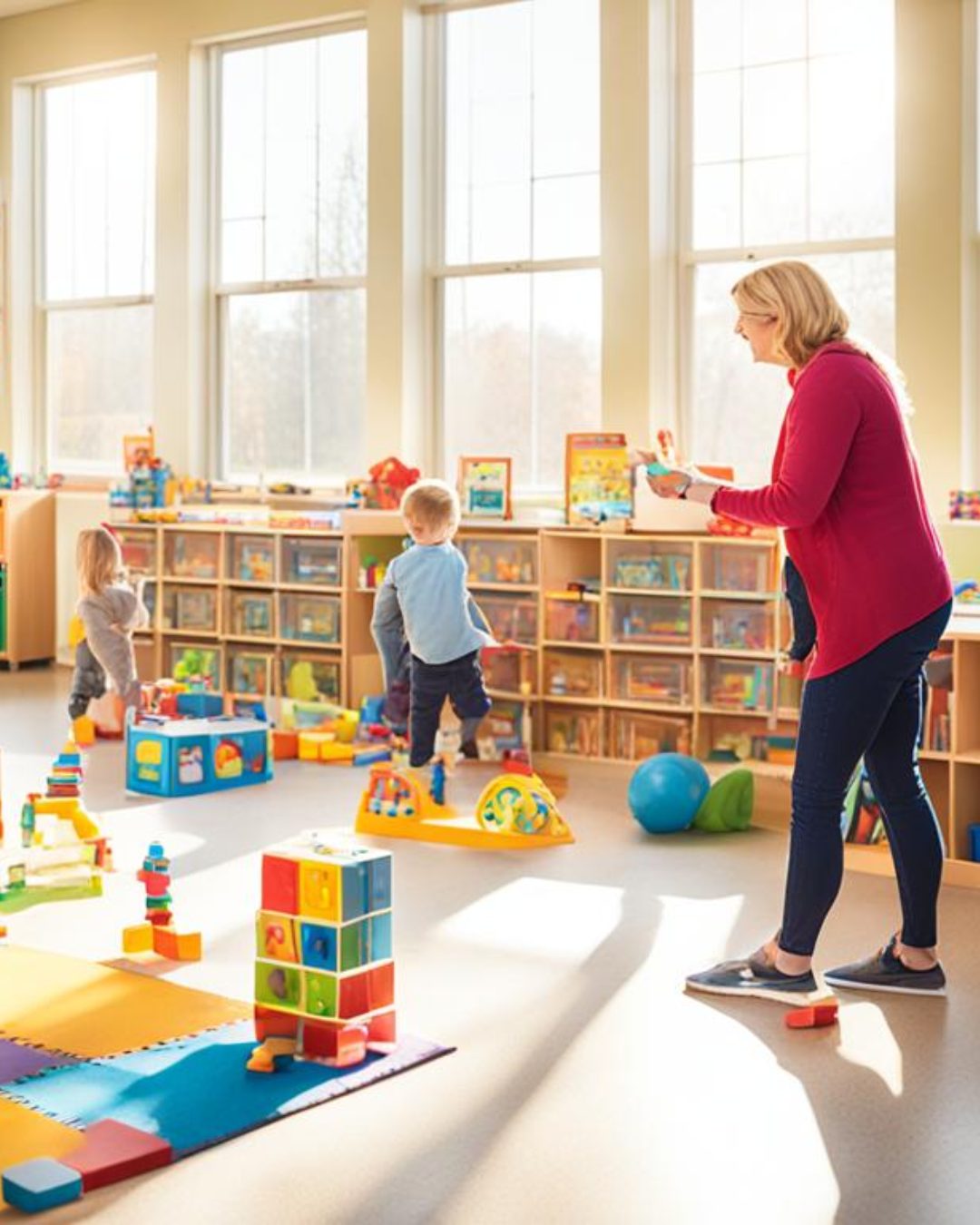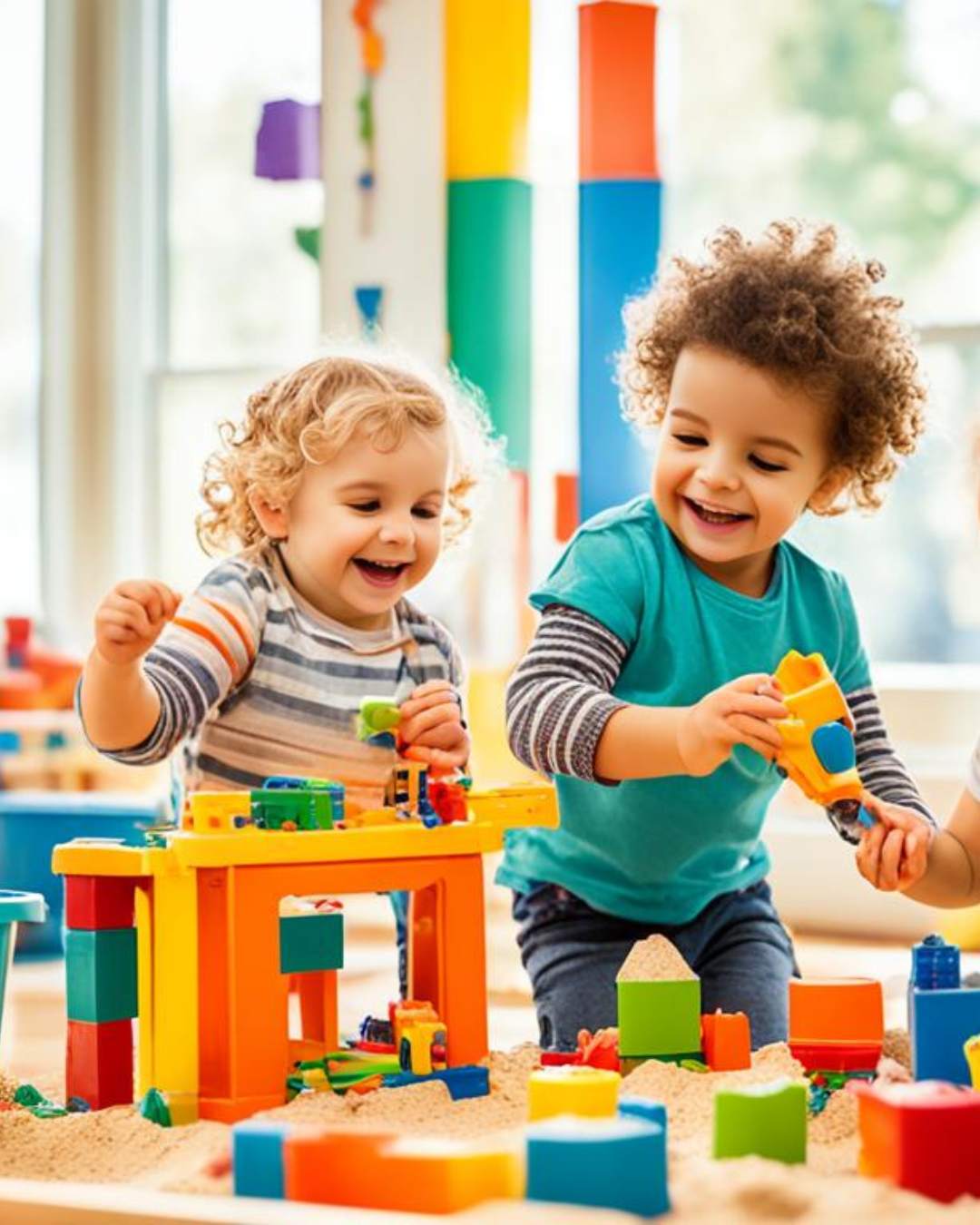Unlocking Growth: The Role of Play in Child Psychology
Did you know that play is not just a form of entertainment for children? It is actually a powerful tool that plays a crucial role in their overall development and emotional well-being. Play in child psychology has been extensively studied and proven to have significant impacts on various aspects of a child's life.
The importance of play in childhood cannot be underestimated. It stimulates imagination, encourages social and emotional development, and enhances cognitive skills. Toys, far from being mere objects, provide sensory stimulation, promote fine and gross motor skills, and aid in language and communication development.
But what makes play truly remarkable is its ability to shape brain development. By engaging in play, children not only stimulate neural connections but also enhance their sensory processing skills. This, in turn, promotes cognitive growth by encouraging critical thinking, problem-solving, and decision-making abilities.
To fully unlock the potential benefits of play, it is crucial to select age-appropriate toys that align with a child's developmental stage. In the sections to come, we will explore the various facets of play-based learning, its impact on brain development, and the range of activity toys that promote physical and creative development.
Join me as I look deeper into the world of play and discover how it can foster healthy development and emotional resilience in children.

Importance of Play in Cognitive, Emotional, and Social Development
Play is a fundamental aspect of a child's development, with a significant impact on their cognitive, emotional, and social growth. Through play, children engage in activities that stimulate their minds, allowing them to develop crucial skills while having fun.
During play, children are actively involved in problem-solving, reasoning, and using their imagination. These cognitive processes contribute to the development and refinement of their thinking abilities. By navigating various scenarios and challenges through play, children learn to think critically, make decisions, and explore different solutions.
Moreover, play provides a platform for children to explore and express their emotions. Whether they are engaging in dramatic play, imaginative play, or art activities, children can freely express themselves and process their feelings in a safe and creative way. This emotional exploration fosters self-awareness, empathy, and emotional resilience.
Additionally, play offers valuable opportunities for social interactions. Whether playing with siblings, friends, or participating in group activities, children learn important social skills such as cooperation, communication, and conflict resolution. Through play, they also develop a sense of belonging, build friendships, and learn to navigate social dynamics.
It is crucial for parents, caregivers, and educators to understand the importance of play in a child's cognitive, emotional, and social development. By providing children with ample opportunities for play, they can actively contribute to their overall growth and well-being. Encouraging play-based learning experiences, offering age-appropriate toys and materials, and supporting children's imaginative endeavors can help foster their cognitive development, emotional intelligence, and social skills.
By recognizing the significance of play and incorporating it into a child's daily routine, we can create environments that promote holistic development and lay a strong foundation for their future success.
Different Types of Play and Their Benefits
Engaging in various types of play offers unique benefits for a child's development. Each type of play provides opportunities for children to learn and grow in different ways, supporting their cognitive, emotional, and social development.
Sensory play: This type of play involves stimulating a child's senses, such as touch, sight, smell, and hearing. It allows children to explore and understand the world around them. Through sensory play, children develop fine motor skills, enhance their sensory processing abilities, and expand their creativity. It can involve activities like playing with sand, water, or playdough.
Dramatic play: Also known as pretend play or imaginative play, dramatic play enables children to act out scenarios and take on different roles. By engaging in imaginative play, children enhance their social skills, such as empathy, cooperation, and communication. They also develop their creativity and problem-solving abilities as they navigate different roles and situations. Examples of dramatic play include playing house, pretending to be superheroes, or putting on a puppet show.
Constructive play: Constructive play involves building or creating something using blocks, Legos, or other construction materials. This type of play helps children enhance their problem-solving abilities, critical thinking skills, and spatial awareness. It encourages them to think logically, plan, and experiment with different ideas. Constructive play promotes creativity, as children imagine and bring their ideas to life through their constructions.
Physical play: Physical play involves movement and activity, helping children develop their gross motor skills and overall physical health. It includes activities like running, jumping, climbing, and riding a bike. Physical play not only improves strength and coordination but also promotes a healthy lifestyle and supports brain development. Through physical play, children learn about their bodies, develop their spatial awareness, and gain a sense of adventure and exploration.
Engaging in different types of play allows children to explore, learn, and have fun. It is important for parents, caregivers, and educators to provide a variety of play opportunities that cater to different developmental needs. By incorporating sensory play, dramatic play, constructive play, and physical play into a child's daily routine, you can support their holistic development and create a nurturing environment for their growth.
How Play Shapes Brain Development
Play has a profound impact on brain development, promoting cognitive growth and emotional regulation in children. Through play, children engage in activities that stimulate neural connections and enhance sensory processing skills. This not only strengthens their cognitive abilities but also allows them to develop problem-solving, critical thinking, and decision-making skills.
Play serves as a valuable tool for emotional regulation, enabling children to express and understand their feelings. By immersing themselves in imaginative play, children can explore and process their emotions in a safe and supportive environment.
Moreover, play is integrated into child therapy as a means to promote positive mental health and emotional well-being. Therapists utilize play-based interventions to engage children in therapeutic activities that facilitate self-expression, enhance their social skills, and promote emotional resilience.
Incorporating play into child therapy not only facilitates cognitive development but also fosters emotional growth. By recognizing the intricate connection between play and brain development, we can harness the power of play to support children's holistic development.
In Conclusion
Play is an essential aspect of child psychology, playing a crucial role in fostering development and emotional resilience. By integrating play into various aspects of a child's life, such as education and therapy, we can unlock their potential for healthy growth.
Through play, children stimulate their imagination, allowing them to explore and create new worlds. Play also enhances social and emotional development, as children learn to interact, share, and empathize with others. Additionally, play promotes cognitive growth, as children engage in problem-solving, critical thinking, and decision-making activities.
It is crucial to prioritize play in childhood, providing children with age-appropriate toys and ample opportunities to explore, learn, and thrive. By selecting toys that align with a child's developmental stage, we can maximize their developmental benefits. Whether it's through imaginative play, physical activities, or educational games, play contributes to the holistic development of children.



